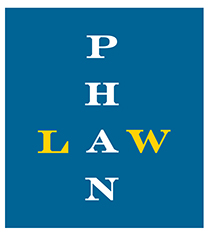Dental Records – How to Avoid a Complaint in This Area by the Texas State Board of Dental Examiners
Understanding TSBDE Rule 108.8, Records of the Dentist
When I was head attorney for the Texas State Board of Dental Examiners (TSBDE), I was, quite frankly, perplexed at the sheer number of complaints and ensuing violations under Rule 108.8, Patient Records. Generally, Rule 108.8 requires that a dentist make, maintain, and keep adequate records of the diagnoses made and the treatment performed for and upon each dental patient for reference, identification, and protection of the patient and the dentist. Under the definition found at 108.8(a) for a dental record, a dentist should be aware that alongside medical histories, diagnoses, treatment plans, and radiographs that most know are part of patient records, records also include billing and payment records as well as appointment records, consultations, and recommended referrals.
Common pitfalls giving rise to a TSBDE complaint involving patient records
From my perspective, the root of why this rule was troublesome for dentists boiled down to basically two reasons seen repeatedly; both of which are easily preventable. First, problems stem from dentists who delegate this task to an assistant(s). As with all things, a dentist’s time is limited/valuable and the delegation of this task to an assistant, although it saves time, lends itself to problems in terms of record keeping given that the dentist is ultimately responsible for the dental records that the assistant may have failed to record or record appropriate and/or adequately. Second, and by far a more troubling reason, disagreements with patients often get in the way of common sense which leads to improperly withholding dental records. These reasons assuredly invite a complaint being filed with the TSBDE.
Education of the dentist and dental staff regarding the requirements of TSBDE rule 108.8 is key
Regarding the former, my hope is to encourage practitioners to spend the necessary time to read and understand the rules governing their practice. It is true that ignorance is not a valid defense with the TSBDE. The TSBDE’s rules are found on their website. As busy as we all are, no dentist needs the added stress of dealing with a board complaint, especially with respect to one dealing with records and record keeping.
The advent of more sophisticated software systems regarding modern day record keeping greatly aid the dental practice even if one delegates, but one must still ensure that entries regarding records must be made, are complete, are accurate, and maintained. Ultimately, the dentists is always responsible regardless of whether he or she has delegated this task. In short, if one delegates, one must ensure that he or she continues to review and oversee.
The TSBDE’s authority to review dental records for compliance in a complaint where the complaint did not arise due to dental records
A dentist should be aware that even if the originating complaint does not involve a dispute about records (e.g., a dispute over fees or a dispute involving the treatment rendered), the TSBDE will request all records that gave rise to the complaint with records that span multiple years. This will subject the dentist to scrutiny over his or her records. If the records are insufficient, this will lead to an expanded complaint and an added allegation of misconduct to include records.
Overcoming disputes with patients, especially those patients with differing personalities to avoid scrutiny of one’s dental records by the TSBDE
Regarding the latter reason, most dentists strive to deliver the best customer service. However, because dentists deal daily with individuals in a consumer, client service, driven profession, many of who are expressive and may be opinionated, it is not hard to imagine a situation where one has provided dental services to a patient who remains unhappy, regardless of the reason or merit. I have seen the recurring fact pattern where the patient/complainant is not happy with the services or how they were treated, for reasons known and unknown, and wish to take his or her business to another dentist. In this situation, the parties may have had an unpleasant exchange of words, either in person or over the telephone. Usually this occurs between the patient/complainant and the dentist, but oftentimes includes the dentist’s staff. In situations such as this, both parties believe they are in the right with pride taking center stage. Regretful as this may be, as a dentist, ask yourself this: are you willing to risk a complaint filed against you because of your pride?
With this as the backdrop, the complainant/patient will request a copy of the patient records only to find resistance from the dentist and/or his or her staff. In my opinion, this is an open invitation for a complaint. Although TSBDE rule 108.8(d) provides that dental records are the sole property of the dentist who performed the dental service, it also provides that such records “shall be available for inspection by the patient after and upon appointment with a dentist.” In a situation such as this, it is best to put one’s ego and pride aside and ensure that the unhappy patient is allowed access to the records and compliance with that TSBDE rule 108.8. Given that emotions are running high, the risk of having a board complaint filed against you in this situation is not worth the time or trouble, even if you are right in your disagreement with the patient/complainant.
It may be that the practitioner is not aware that this is occurring and that the ill-feelings are created through communication directly with the dentist’s staff with the dentist not involved until it is often too late. If this is the case, one’s staff should be made aware of the rule and trained appropriately to handle these situations civilly and without escalation. One should always have a policy in place for dealing with records requests.
The avoidance of withholding dental records for past due or outstanding balances
Further, one should be aware that under Rule 108.8(g) a dentist shall furnish copies of dental records to a patient who requests his or her dental records. Requested copies, including radiographs, shall be furnished within 30 days of the date of the request, provided however, that copies need not be released until payment of copying costs has been made. Another important requirement, and one often that gets dentists in trouble, records may not be withheld based on a past due account for dental care or treatment previously rendered to the patient. Therefore, a dentist can withhold dental records for nonpayment of the copying costs, but cannot withhold records for nonpayment of dental services.










